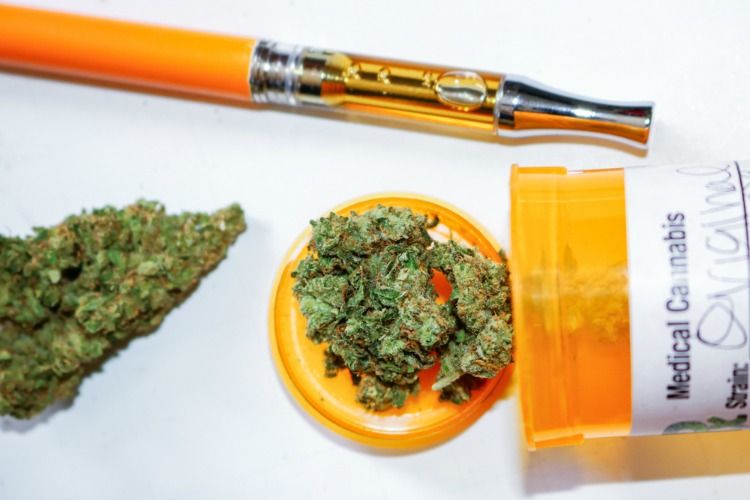Anorexia is a lot more common than you might think, affecting almost one in 200 Americans at some point in their lives. While the word “anorexia” comes from the Greek words for “without appetite,” patients with this eating disorder don’t lose their hunger for food—they spend their days struggling to conquer it.
It’s no secret that cannabis has a notorious reputation for inducing the munchies, but can it be useful as an anorexia treatment? In this article, we will take a look at the evidence and how cannabis can help with this deadly disorder.
What is Anorexia and How Do Eating Disorders Develop?
Anorexia nervosa is a disorder characterized by self-starvation, excessive weight loss, and an intense fear of gaining weight. Aside from its dangerous and potentially deadly physical effects, it is considered a mental illness.
People who develop anorexia often use food restriction and weight loss as a way to gain a sense of control in their lives and to cope with emotional problems or unresolved trauma. They also tend to associate being thin with self-worth. External cues from the media starting at a young age can lead a susceptible person to lose weight and set in motion an obsession with body size and food restriction.

Is Cannabis an Effective Anorexia Treatment?
While medication and talk therapy can be life-changing for many people with mental health disorders, anorexia has proven to be very difficult to treat. The idea that cannabis can stimulate the appetite and help someone gain weight seems obvious, but anorexia is a complex disease with no simple solutions. Unfortunately, there are only a handful of studies on the effectiveness of cannabis for anorexia, but what we do know looks promising.
A 2011 study found that an unbalanced endocannabinoid system is common among people with eating disorders. This imbalance can cause you to feel less pleasure from eating and develop negative associates with food. While more research is needed to better understand the relationship between the endocannabinoid system and eating disorders, this evidence suggests that activating the brain with cannabis could help people develop healthy food habits in place of bad ones.
While one study showed that a synthetic form of THC could help patients with anorexia gain weight, there might be a more useful role that cannabis can play. According to some theories, the key to anorexia treatment is addressing the root emotional trauma underlying the physiological symptoms. Medical marijuana may help relieve some of the anxiety and stress associated with the emotional and psychological trauma at the root of the problem.

While mainstream medicine is still on the fence about cannabis and anorexia, many credit medical marijuana with helping them beat the disorder. Cannabis shouldn’t be the only course of action for anorexia, but part of a toolset that includes behavioral modification, psychological counseling, and nutritional support. If you are interested in using cannabis to help treat an eating disorder, always consult a medical professional to discuss all your options as well as their risks and benefits. Schedule an appointment to learn more.